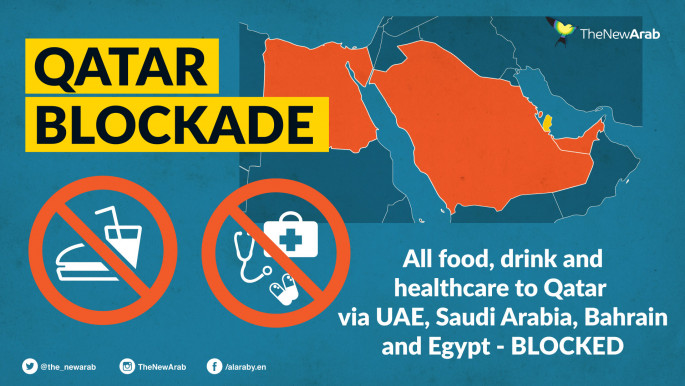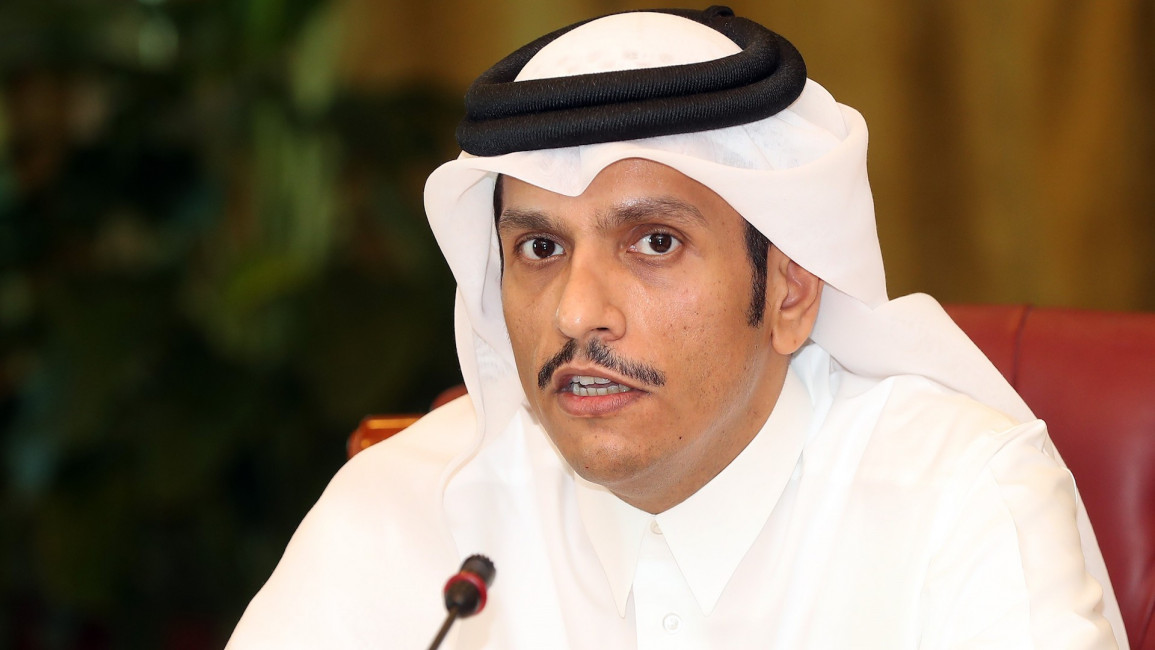
Belligerent Saudis made the wrong choice in sidelining Qatar
Nothing appeared more ridiculous in the recent political Gulf spat, than the sudden accusation by Saudi Arabia and its chums that Qatar is abetting terrorism, meddling in the affairs of the GCC nations and offering asylum to the supposed terror-masters.
Memories are short, but not too short to remember that none of the 9/11 culprits were Qatari and that the cult hero, Osama was fostered in Saudi Arabia and had experimented in Afghanistan.
The drama and charade began 10 days ago, when Saudi Arabia and the acquiescent, UAE and Bahrain announced they would break all diplomatic ties with Qatar, and later put many of the prominent religious figures on the terror list, including those who had already enjoyed its hospitality.
If this was not sufficient punishment, they further imposed an air, maritime and land traffic blockade against Qatar in this holy month of Ramadan, causing havoc and resentment among locals.
Soon the chorus was joined by Egypt, Libya, Yemen, Maldives and Mauritania. Somalia was reportedly offered US $80 million to fall in line, but did not succumb. Egypt's submissiveness - due to its economic compulsion - is predictable, and its old roaring against Qatar to condole the democratic opposition there was never a secret.
 |
Both Saudi Arabia and UAE along with Egypt are highly reliant on Qatari gas |  |
Moreover this was a moment for Egypt to compensate for its refusal to join the Saudi-led erratic war in Yemen, in which Qatar made equal sacrifices. But the most bewildering part of the boycott drama came perhaps from Yemen and Libya, who have been in tatters for a long time, and who are struggling to establish sovereign governments of their own.
The boycott of Qatar and Saudi Arabia's ensuing demands to cut off all ties with Iran, freeze the bank accounts of political leaders of Palestine and Egypt, and to shut down globally acclaimed Al-jazeera TV channel demonstrates a strategy coupled with political short-sightedness, panicky politics.
This is due to its diminishing role in Syria, and potential defeat in the quagmire that is the conflict in Yemen. What else could suggest the nervousness in the ruling family of UAE and Saudi Arabia, than issuance of a decree imposing a hefty fine and imprisonment for sympathising with the Qatari leadership.
The role of President Trump's recent visit to Saudi Arabia must also be considered. Not long after Air Force One had left Riyadh, Saudi Arabia and UAE - whose princes have recently emerged as the region's new political masters - launched a vicious campaign against the ruler of Qatar.
 |
|
This backlash and bizarre attitude, apart from announcing a new doctrine for Trump, seems to have been fed by a fear of Iran spreading among, and by UAE and Saudi rulers.
Trump's branding of Iran as the source of all evils bolstered a new confidence in the Saud family and its soul mates, who had earlier failed to hide their anxiety after the nuclear deal with Iran was brokered.
What really worries the kingdom and it clients, is Qatar's refusal to follow the dictum, "Do as we do or we will do unto you".
Qatar's original sin lies in attempting to forge a path independent of Saudi Arabia.
While Saudi Arabia and its cohort have blamed Qatar for meddling in the internal affairs, the reality unfortunately smacks of the reverse: It is Saudi Arabia which is both meddling in Qatari affairs, by asking it to break ties with Iran, and shut down Aljazeera TV outlet.
| Read more: Qatar and the risky politics of bullying | |
Saudi Arabia's frustration has put it on panic mode, as it has lost one strategic battle after another. Unlike other members of the GCC, Qatar has evolved its autonomous political space and has its own ambition driven by its economic stature and politics.
Qatar claims its proximity to the western world, and one cannot overlook the fact that it is set to host to the 2022 FIFA World Cup.
 |
Unlike other members of the GCC, Qatar has evolved its autonomous political space |  |
Its ruling clique, despite being descended from the 18th century Wahabi family, neither follows nor promotes puritanical Islam.
The severed transport links between UAE, Saudi Arabia, and Qatar mean the country will be quickly forced to find other sources of food.
Many of the UAE ports are key points of access for Qatar. Both UAE and Saudi Arabia are prominent suppliers of fresh produce to Qatar. Iran and Turkey have already stepped in to ease the crisis, sending fruit and vegetables to Qatar.
Saudi Arabia and UAE should be ready to face the consequences, as both countries along with Egypt are highly reliant on Qatari gas. The current crisis is likely to have an adverse impact on regional trade and banking sectors and stock markets.
Qatar cannot be forced down by using the rhetoric of anti-terrorism, because the isolation of Qatar is more to do with its refusal to toe the aggressive Iran-focused policies of other members in the GCC.
Saudi Arabia and its allies have made the wrong choice in sidelining Qatar, which today is well poised to serve the interest of all, not simply because of its sovereign wealth of US $350 billion, but because it hosts the sole US Middle East Central Command base, and enjoys a good rapport with prominent EU members.
The self-defeating act can be only rectified by rescinding the blockade on Qatar, and commencing negotiations, otherwise it will drag new actors into GCC politics. The current belligerency of the few will thwart GCC unity, which risks the same fate as the Arab League and the OIC - who are are nothing but printing houses for resolutions and recommendations.
Dr Fazzur Rahman Siddiqui is a fellow at the Indian Council of World Affairs (ICWA), a Delhi-based foreign policy think tank. His area of research is political Islam and Arab politics. He is the author “Political Islam and the Arab Uprising: Islamist Politics in Changing Time (Sage: 2017). He writes regularly on political issues in the Arab world.
Follow him on Twitter: @fazzurrahman
Opinions expressed in this article remain those of the author and do not necessarily represent those of The New Arab, its editorial board or staff.
Join the conversation by tweeting to us: @the_newarab




